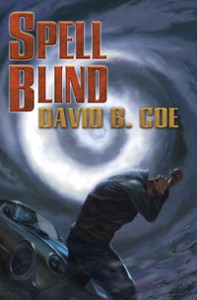A new month, a new blog series. Not that I’m committing to doing a series every month. Really, I’m not . . . .
[Sigh] What have I done . . . ?
Over the course of my career, which has spanned more than twenty-five years, I have managed to accomplish a lot of things. But it has occurred to me that I have also made some pretty interesting mistakes. And maybe readers would learn something from hearing about a few of them. Certainly they might be entertained. And so, with this week’s post I kick off my “My Best Mistakes” series. I hope you enjoy it.
I’m going to start with a story a number of you might already know from one context or another. If you have seen me on panels or at readings, you might well have heard me tell it. If not, here you go. (And a note pertaining to this post and others to come — I will be telling stories that almost invariably include other people and/or published works of mine that I am still seeking to market. In the interest of discretion, some details of these mistake-stories will be kept purposefully vague. I hope you understand. If you don’t understand . . . well, I really don’t care.)
 Very early in my career — like, one book in — I attended a very large convention as a guest. It was by far the largest, best-attended con I’d been, too, and at first I was a bit star-struck by the whole thing. Unfortunately, that didn’t last. Read on.
Very early in my career — like, one book in — I attended a very large convention as a guest. It was by far the largest, best-attended con I’d been, too, and at first I was a bit star-struck by the whole thing. Unfortunately, that didn’t last. Read on.
One of my panels was on character-building. Or at least I think it was. Maybe it was on things that happen to us when we write. Or things we can talk about that will allow an impulsive, full-of-himself-young-writer-with-one-lonely-book-to-his-name to do stupid things. I was on the panel with three other authors. Two of them I didn’t know, though they seemed to be solid mid-list authors, each with several publishing credits. The third was a giant in the field. This writer also published with Tor, my publisher, and might well have been one of their three biggest names. I was nothing compared to this person. I was lint.
Somehow, the discussion turned to that wonderful creative moment when our characters begin to do things that we don’t expect, that we don’t necessarily plan. I have written and spoken about this quite a bit. To my mind, it is the moment when we discover that all the work we’ve done to create realistic characters has paid off. They are acting of their own volition in a sense, though of course we are still creating them. The creation is just happening deep in our hind-brains, making it SEEM that they are independent, sentient beings. That, at least is how I felt — and still feel — about it.
The big-name writer disagreed. This person responded to what I had said about this by telling me, in no uncertain terms, in front of a roomful of people, that if my characters were not doing exactly what I expected, I was doing it wrong. And be “it” this person meant “writing.”
“You are the god of your world,” this person said. “You control everything.” End of story. As it were.
The other two writers quickly dropped out of the conversation. They sat at the panel table, staring at their hands, keeping silent, and allowing this other idiot — ie. Me — to keep on arguing the point. Because they were very smart. Much smarter than me. I. Whatever.
Me? I just kept on arguing with the big name, the person who could crush me and my career like a bug if they chose to. Because I was right and this person was wrong. That’s what I thought. (Still do, honestly, but that’s beside the point.) Finally, in my growing frustration, I said (at volume, with heat) “If you write them like puppets, they’ll read like puppets!”
And then I realized what I’d done. Big name. Room full of people. Me saying, essentially, that this person wrote flat, boring, lifeless characters. Holy fuck.
As I have said before in other venues, in that instant the entirety of my tiny little career flashed across my eyes. I figured I was totally screwed. Worse, I had screwed myself.
Now, as it turned out, I was fine. The conversation shifted to another topic. I kept my voice down and my opinions blandly neutral for the rest of the panel. And afterward, I apologized profusely. The big name author was gracious, kind, generous, and forgiving.
I was fortunate. I also learned a valuable lesson. Panel discussions can grow heated; the best ones sometimes do. But even when they do, we must remain polite, and we must always refrain from making any of our statements sound personal or targeted. Because that’s the courteous thing to do. But also because we are always going to be on panels with a mix of people, some of them less experienced than we are (or at least equally lacking in experience) and some of them more experienced, with greater reach and a greater capacity to hinder our career advancement.
I got lucky that day. The person at whom I directed my statement understood I was speaking without thinking, in the heat of the moment. Other authors might not have been so understanding. I could have done real damage to my career.
So that is this week’s mistake. In future weeks, I will focus on different sorts of missteps — bad business decisions, bad reactions to reviews, etc. I hope you find the stories helpful.
In the meantime, as always, keep writing.









